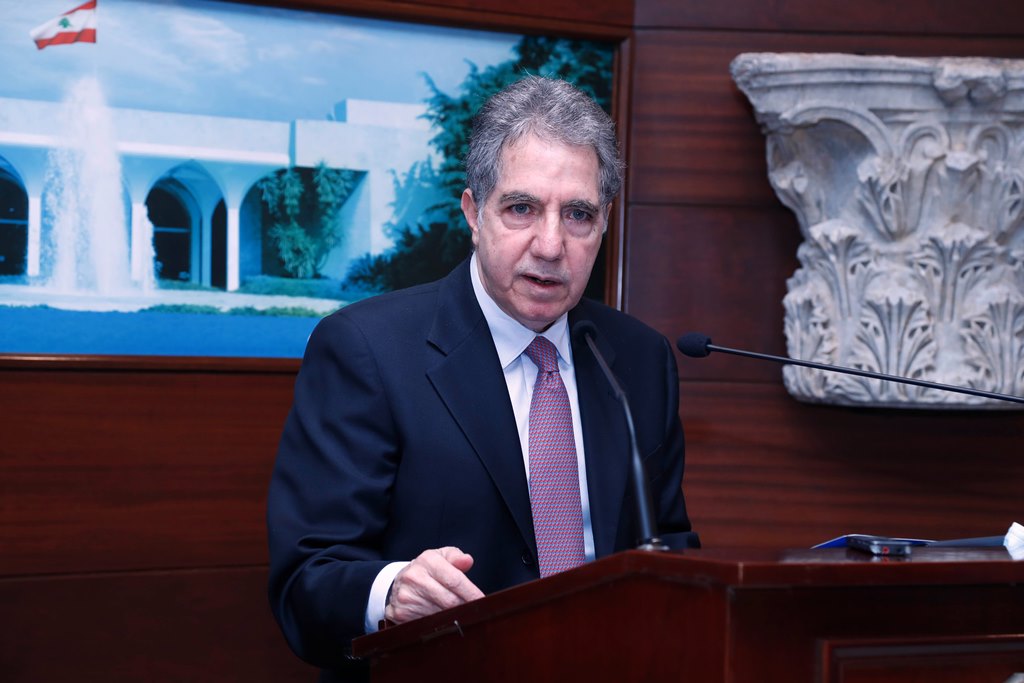São Paulo – The World Bank Group’s Board of Executive Directors approved this Tuesday (12) a USD 246 million loan to Lebanon. The cash will support a project designed to provide “emergency cash transfers and access to social services to approximately 786,000 poor and vulnerable Lebanese reeling under the pressure of Lebanon’s economic and COVID-19 crises,” a World Bank press release reads.
“The Emergency Crisis and COVID-19 Response Social Safety Net Project (ESSN) will also support the development of a comprehensive national social safety nets system to allow a better response to ongoing and future shocks,” the press release went on. The state-run National News Agency (NNA) reported that Lebanon’s interim Finance minister Ghazi Wazni (pictured above) had “signed the minutes of negotiation based on the terms of the draft agreement” on October 12, 2020.”
During one year, the project will provide “a monthly transfer of LBP 100,000 (USD 66.33) per household member, in addition to a flat amount of LBP 200,000 (USD 132.67) per household,” via a prepaid credit card. Users will be able to cash out the amount at ATMs or make electronic payments on a network of food shops.
Additionally, 87,000 children aged 13 to 18 will receive “a top-up cash transfer to cover the direct costs of schooling including school registration fees, parents’ council fees, school textbooks costs, transport and school uniform expenses, and computer equipment and/or internet connectivity to enable remote learning.”
The World Bank said Lebanon is facing unprecedented crises. A severe economic and financial crisis led to a projected 19.2% decline in GDP in 2020, triple digit inflation and a projected increase in poverty to 45% and in extreme poverty to 22%. Approximately 1.7 million people are estimated to fall under the poverty line, of which 841,000 people will be under the food poverty line.”
The situation was made worse by the Covid-19 pandemic. This month, the administration attempted to resume a lockdown to try and keep infection numbers down. Last Monday (11) the country declared a state of emergency. According to the World Health Organization, there have been 231,936 confirmed cases and 1,740 deaths from Covid-19 in Lebanon.
To make matters worse, an explosion rocked the Port of Beirut in Lebanon’s capital last August, claiming lives and causing USD 3.8 billion to USD 4.6 billion in losses according to the World Bank. It triggered yet another wave of emigration and brain drain.
- Here’s more on migration from Lebanon: New emigration wave starting in Lebanon
“The consequences of these repeated shocks on the economic well-being of households is far-reaching and potentially disastrous”, said World Bank Mashreq Regional Director Saroj Kumar Jha. “This new project will support the expansion of the national poverty targeting program to protect poor and vulnerable households, particularly female-headed households and those with disabled or elderly people,” he said.
Translated by Gabriel Pomerancblum




